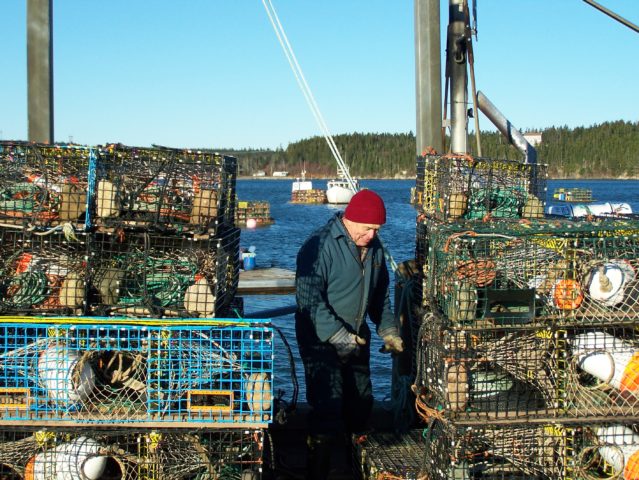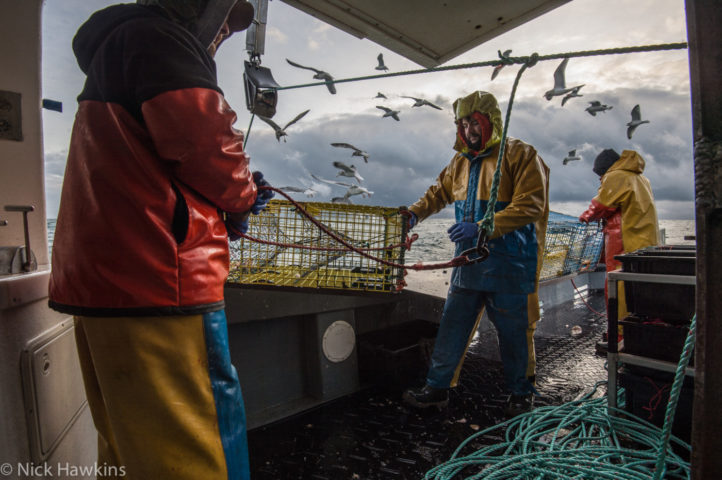New data showing the Gulf of Maine recorded its hottest fall water temperature on record has New Brunswick fishers partnering with conservation groups to adapt and plan for the current and coming changes in the Bay of Fundy, CBC New Brunswick reports.
In her Jan. 31 article, the CBC’s Rachel Cave details the latest report from the Gulf of Maine Research Institute and highlights the work of our friends at Eastern Charlotte Waterways and the Fundy North Fishermen Association to help local fishers manage the warming waters.
The research institute’s seasonal warming update delivered some stark but unsurprising news: the Gulf of Maine is continuing to warm, having this fall recorded a 2.3 degree Celsius increase over the long-term average temperature. That means it was the hottest fall on record, coming on the heels of what was the second-warmest summer of all time in the Gulf.
The Conservation Council’s Marine Conservation team has been following the U.S. researchers’ important work of monitoring changes in the Gulf of Maine and studying the complex effects of climate change in the northwest Atlantic.
Temperatures in the Gulf of Maine and Bay of Fundy have been rising over the past decade and are among the fastest-warming waters in the world. The Bay of Fundy is considered part of the Gulf ecosystem, with its famous tides serving as a nutrient pump for the greater system.
The ocean currents feeding into the Bay of Fundy are slowing and changing as a result of climate change, and this, coupled with the unique geography of the Gulf of Maine and Bay of Fundy, will have a major impact on the marine ecosystem.
As temperatures in the Bay of Fundy increase, the water is less comfortable for species that prefer cooler temperatures, like cod and flounder.
These species will move north into cooler waters. The same process is happening further south, which means we’ll see new species coming into the Bay of Fundy, such as the longfin squid already observed in the bay, while some of its current inhabitants are expected to decline.

Rising temperatures over the last decade have created an ideal environment for species like the American lobster, but as temperatures continue to climb, conditions in the Bay of Fundy will become too warm for the iconic crustacean. This means that we expect lobster will be less productive and to start moving north in the coming decades.
The changing temperatures and species ranges will affect both the local fishing industry and the Bay of Fundy’s ecosystem. Scientists and policy makers have long considered how to best mitigate and adapt to these changes.
One of the best things we can do for our marine ecosystems is protect, conserve, and restore species and populations that are resilient to climate change. Developing more marine protected areas, the focus of the upcoming International Marine Protected Areas Congress (IMPAC5), is critical to this work.
Species like gaspereau, for example, a river herring species, currently run far to the south of the Bay of Fundy and are considered more resilient to the coming changes because they tolerate warmer temperatures elsewhere than what they currently experience in the Bay of Fundy.
In Charlotte County, our friends at Eastern Charlotte Waterways and Fundy North Fishermen’s Association are working to help fishermen and communities in southern New Brunswick prepare for the coming changes in the Bay of Fundy.
The groups are conducting surveys to assess the value of fishing, both economically and culturally, in the region. They’re also asking fishermen how willing and able they are to adjust their current practices in the face of the bay’s warming waters.
Our Marine Team is pleased to see these important topics being discussed—in the media, between fishers and conservation organizations, scientists and decision-makers, and around kitchen tables across the province.
We’ll continue working with our allies toward a more resilient Bay of Fundy to be enjoyed for generations to come.

